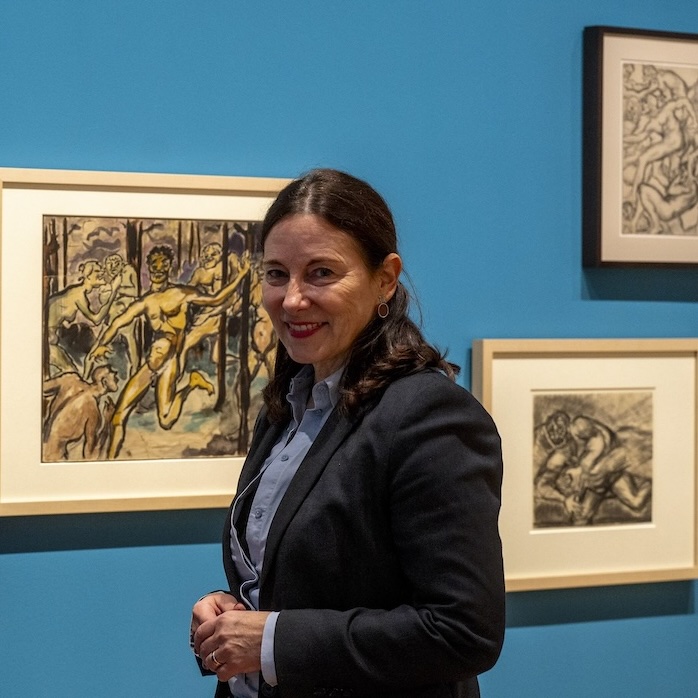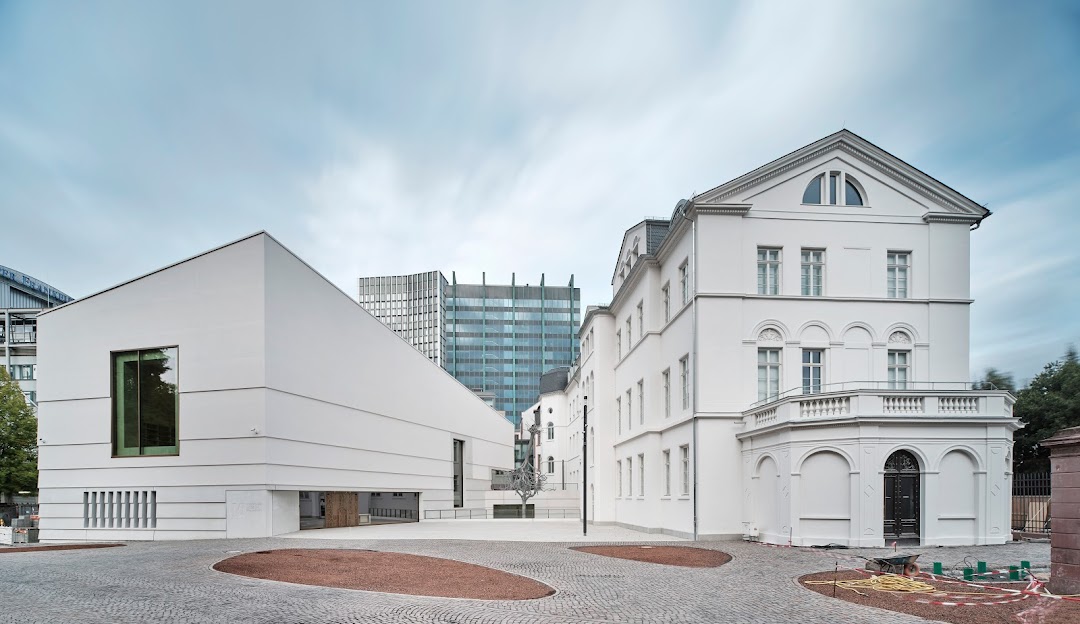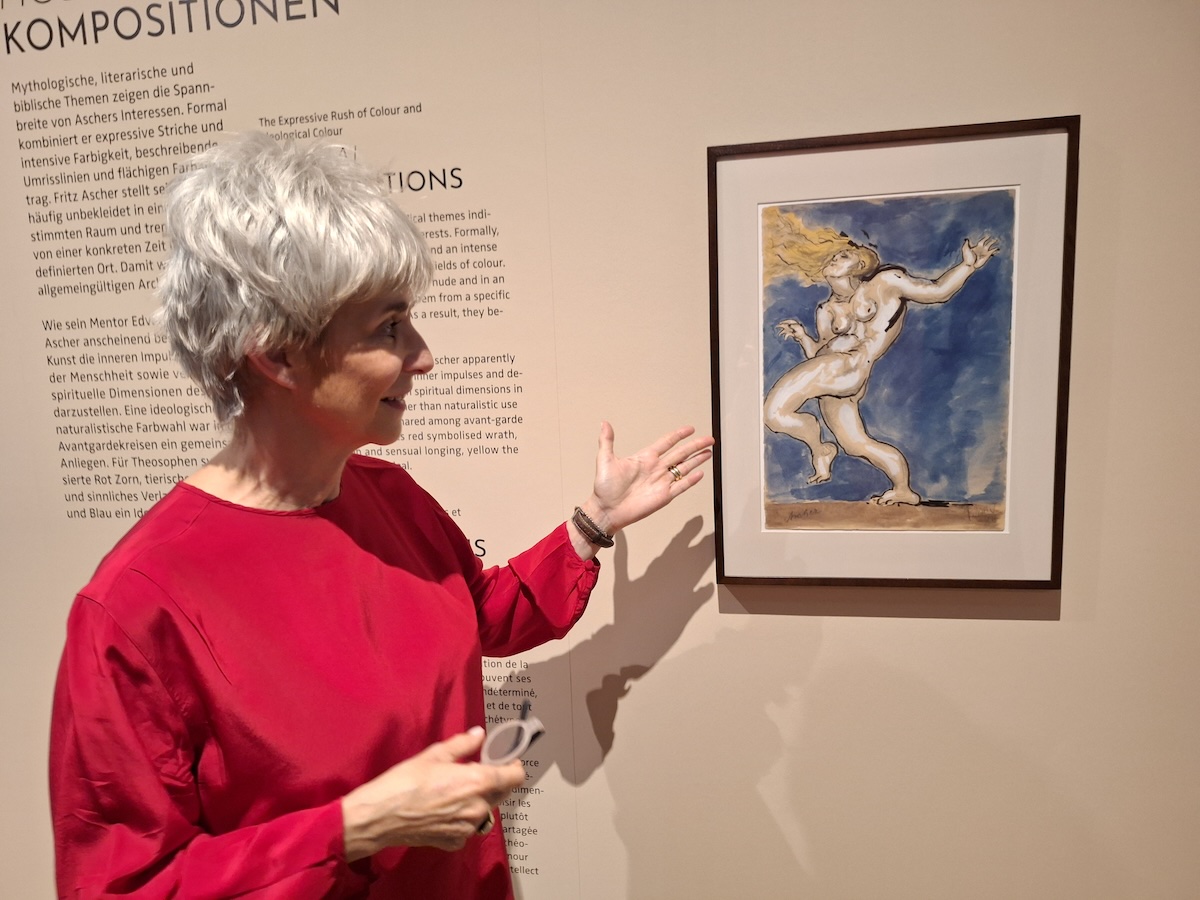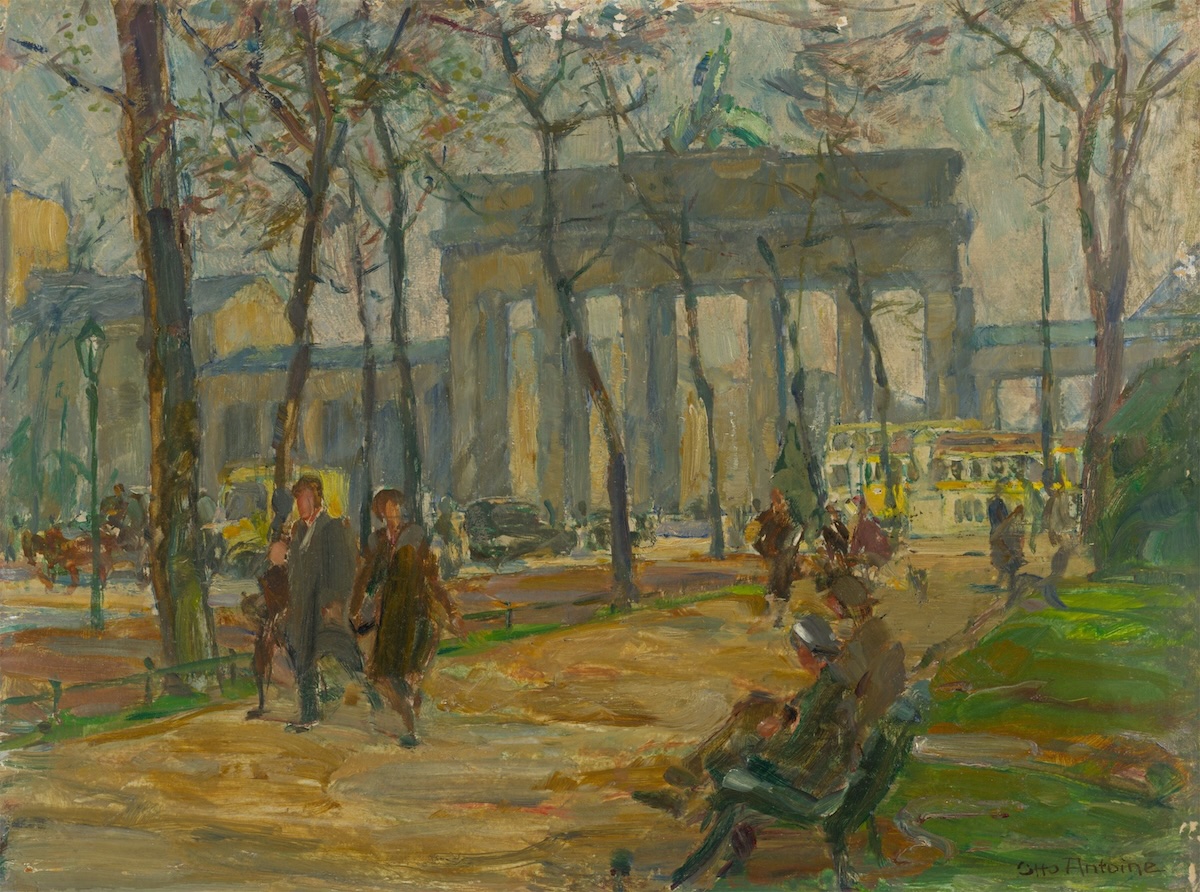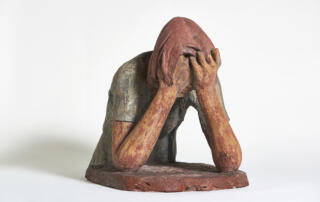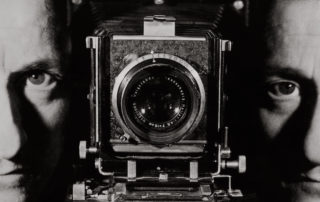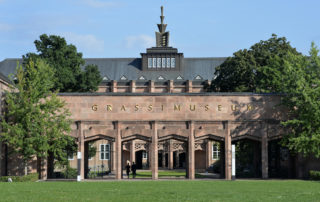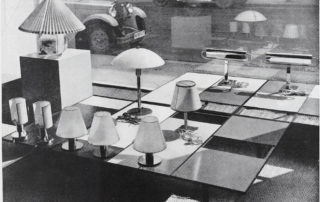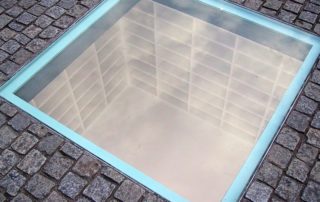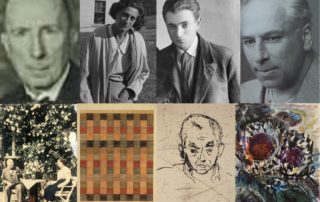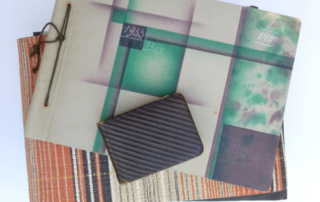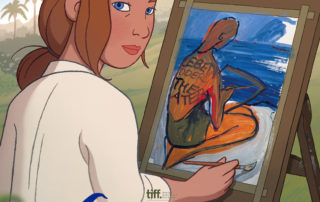Rachel Stern2024-12-18T05:55:27-05:00December 4th, 2024|Events, Lectures, Past Events|
Jutta Götzmann, exhibition curator of "Love and Betrayal," presents the artist Fritz Ascher (1893-1970) during a tour. In addition to early charcoal, graphite and ink drawings, colorful gouaches are fascinating. Poems that are considered his "unpainted pictures" and were created in secret during the National Socialist era complement the exhibition. BUY TICKETS HERE The Fritz Ascher Society is a not-for-profit 501(c)3 organization. Your donation is fully tax deductible. YOUR SUPPORT MAKES OUR WORK POSSIBLE. THANK YOU. DONATE HERE
Rachel Stern2024-11-24T14:39:31-05:00October 28th, 2024|Events, Lectures, Past Events|
Der Maler, Grafiker und Dichter Fritz Ascher (1893-1970) wurde bereits als 16-Jähriger von Max Liebermann an die Akademie in Königsberg empfohlen. Ab 1913 gehörte er zu den gefragten Malern in Berlin. Er war ein genauer Beobachter seiner Zeit; die Urkatastrophe des Ersten Weltkriegs und die revolutionären Unruhen in Berlin führten ihn zu christlichen und mystischen Themen, die er radikal neu interpretierte. Nach 1933 erhielt Ascher als Jude Berufsverbot. Während der Pogrome am 9./10. November 1938 wurde er verhaftet und im Konzentrationslager Sachsenhausen und im Potsdamer Gestapo-Gefängnis interniert. Die Schoa überlebte er ab 1942 versteckt in einem Keller in Berlin-Grunewald. Während dieser einsamen Jahre verfasste er Gedichte. Als Künstler fand Ascher nach 1945 seinen ganz eigenen Stil. Angeregt vom nahe [...]
Rachel Stern2024-11-24T14:40:53-05:00October 22nd, 2024|Events, Lectures, Past Events|
Der spätexpressionistische Künstler Fritz Ascher (1893-1970) überlebte zwei Weltkriege und die Verfolgung durch das nationalsozialistische Regime. Als aufmerksamer Beobachter der Schrecken des Ersten Weltkriegs und der revolutionären Unruhen wandte er sich christlich-spirituellen Themen zu, die er radikal neu interpretierte. In intimen Zeichnungen beschäftigte er sich ab 1916 mit dem Thema Liebe und Verrat, sowohl in seiner Auseinandersetzung mit dem Kreuzigungsthema als auch mit der Figur des Bajazzo in der tragikomischen Oper „I Pagliacci“. Kurzvortrag und Führung von Rachel Stern zeigen den Künstler in seinem sozialen und politischen Umfeld. Image above: Fritz Ascher, Im Wald, um 1919. Weisse Gouache und schwarze Tusche über Aquarell und Bleistift auf Papier, 34 x 32,2 cm © Bianca Stock The late expressionist [...]
Rachel Stern2024-10-09T14:25:07-04:00October 1st, 2024|Events, Lectures, Past Events|
Kathleen Langone speaks about the German born painter Otto Antoine (1865-1951), followed by a conversation with Jacquelyn Delin McDonald from the University of Texas at Dallas. Image above: Otto Antoine, Brandenburg Gate, 1928. Oil on cardboard Antoine displayed an early artistic talent but, due to economic circumstances, started a long-term career as a civil servant, initially as a clerk at a local post office. His drawing abilities were soon recognized, and he increasingly was used as a painter, engraver and designer of stamps for the German postal service. They also sent him to many far-flung places outside of Germany (such as Africa) to paint bucolic landscapes of those countries, which were used to promote their [...]
Rachel Stern2023-11-15T13:37:29-05:00October 23rd, 2023|Events, Lectures, Past Events|
In this talk, Arie Hartog, director of the Gerhard-Marcks-Haus in Bremen, Germany, draws attention to a sculptor who contradicts the common narrative of modern art in the 20th century. Péri began as a constructivist and ended as a figurative artist. Yet he was not an academic traditional sculptor. Introductory remarks by Lilla Farkas, Cultural attaché at the Liszt Institute of the Consulate General of Hungary in New York. Image above: Peter László Péri, Sadness, 1938–1945, pigmented and painted concrete, 52 × 40 × 60 cm. Photo: Jake Wallters © Peter László Péri Estate, London Peter László Péri was born Ladislas Weisz in Budapest in 1889. Peri became the Hungarianized family name in 1918. In 1919, he [...]
Rachel Stern2023-06-07T14:29:04-04:00April 30th, 2023|Events, Lectures, Past Events|
Photographer Erwin Blumenfeld (1897-1969) survived two world wars to become one of the world's most highly-paid fashion photographers and a key influence on the development of photography as an art form. An experimenter and innovator, he produced an extensive body of work including drawings, collages, portraits and nudes, celebrity portraiture, advertising campaigns and his renowned fashion photography both in black and white and color. In this talk, Paris-based granddaughter Nadia Blumenfeld Charbit gives her personal insights into the life and work of the photographer Erwin Blumenfeld. Introduced by Rachel Stern, director of the Fritz Ascher Society. Image above: Erwin Blumenfeld, Double Self-Portrait with Linhoff, Paris, 1938 © Erwin Blumenfeld Estate Born to [...]
Rachel Stern2024-01-15T20:22:29-05:00March 29th, 2023|Exhibitions, Past Exhibitions|
Emmy Rubensohn! Networker and Music Patron - from Leipzig to New York Emmy Rubensohn (1884-1961) was a networker, music patron, concert manager and author of letters. Born in Leipzig in 1884 as the daughter of the Jewish entrepreneurial family Frank, she attended Gewandhaus concerts at an early age and collected autographs from prominent artists of her time. After marrying Ernst Rubensohn in 1907, she moved to Kassel, where the couple turned their house into a cultural meeting place, where composers and performers such as Wilhelm Furtwängler, Walter Braunfels or Ernst Krenek, or visual artists such as the painter Oskar Kokoschka or the sculptor Benno Elkan guested. Thanks to a "residency grant", Krenek was able to complete his opera "Jonny [...]
Rachel Stern2023-05-03T14:36:21-04:00March 28th, 2023|Events, Lectures, Past Events|
Histories of Germany’s Bauhaus art and design school (1919–33) usually position it exclusively as a movement in exile as soon as the Nazis took power in 1933. In fact, the vast majority of its members remained and embraced Nazism, survived it, or became its victims. In this talk, art historian Elizabeth Otto scrutinizes traces of the work and lives of Bauhäusler who, through their imprisonment and often deaths in the concentration-camp system, have largely been lost to the history of the Bauhaus movement. Using archival sources—often scant materials preserved by family members and friends, including documents, photographs, and private memoirs—she reconstructs aspects of these artists’ work and lives and considers how to write the histories that Nazi violence has taken [...]
Rachel Stern2023-04-17T19:19:05-04:00March 6th, 2023|Events, Lectures, Past Events|
In honor of Yom HaShoah, this talk by Georgetown University professor Ori Z Soltes focuses on three Israeli and three American familiar and unfamiliar artists working in very diverse styles and not typically thought of as focusing on the Holocaust. Each of them, however, has offered powerful reflections on the defining catastrophe of the twentieth century. Barnett Newman, the foremost verbal spokesman for the chromatic side of the abstract expressionist movement redefining American painting in the early 1950s, offers an unexpectedly intense reflection on the question of theodicy. Mordecai Ardon, in the process of assuming leadership of the Bezalel school in Jerusalem at around the same time, balances between abstraction and figuration in depicting the Nazi-engendered chaos. Yigal Tumarkin’s [...]
Rachel Stern2022-11-02T01:09:36-04:00August 28th, 2022|Events, Lectures, Past Events|
Four selected life stories tell of survival strategies in war, flight and persecution - and of the consequences of the traumatic experiences for those affected. EVENT RECORDING FORTHCOMING Today we believe that flight, expulsion, oppression and murder which dominated Europe 70 years ago have been overcome. Recent events in Ukraine show us that this is not the case. And again there are countless individuals whose lives are uprooted and who have to reorient themselves. But what does that do to those affected, what does it do to artists and how do they reflect on this experience? With four selected biographies of Berliners, we recall the survival strategies they had to develop during the National Socialist [...]
Rachel Stern2022-06-30T07:48:20-04:00June 7th, 2022|Events, Lectures, Past Events|
Between 1938 and 1945, the National Socialists deported hundreds of thousands of men, women and children from the German Reich to ghettos and camps. The deportations took place everywhere, in broad daylight and for all to see. And yet so far only a few photos are known. Knowing these pictures tell many stories – of the deportees, the perpetrators, and the spectators – this initiative invites your participation in helping us to discover and analyze previously unknown photographs that survive in museums, archives, private attics, basements, or dusty photo albums. In this lecture, Berlin-based Dr. Christoph Kreutzmüller, historian and coordinator developing the educational tool for #LastSeen, speaks about the importance of this project, and how you can become part of [...]
Rachel Stern2022-06-22T15:01:42-04:00June 1st, 2022|Events, Lectures, Past Events|
Join us as the film's producer, Julia Rosenberg, speaks with Ori Z Soltes from Georgetown University in Washington DC about her motivation, thoughts and decisions that went into the creation of her newly released animated film "Charlotte." Moderated by Rachel Stern, Executive Director of the Fritz Ascher Society. Image above: Film poster "Charlotte" "Charlotte" is an animated drama that tells the true story of Charlotte Salomon (1917-1943), a young German-Jewish painter who comes of age in Berlin on the eve of the Second World War. Fiercely imaginative and deeply gifted, she dreams of becoming an artist. Her first love applauds her talent, which emboldens her resolve. But [...]


